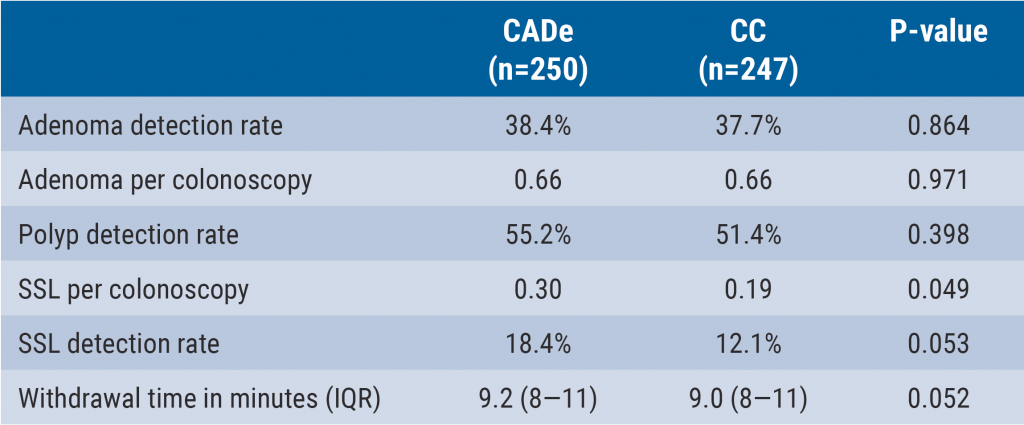https://doi.org/10.55788/6ef1a86f
The study, presented by Ms Astrid Verbiest (University of Leuven, Belgium), investigated the safety and efficacy of apraglutide, a novel, long-acting glucagon-like peptide-2 (GLP-2) agonist [1]. The open-label, phase 2 study was conducted across multiple centres over 52 weeks and assessed the impact of apraglutide on patients with SBS-IF-CiC. During the study, 9 participants, whose small bowel lengths varied from 0 to 50 cm and who had 43–100% of their colon preserved, received weekly subcutaneous injections of apraglutide 5 mg.
The results revealed a marked decrease in the weekly necessity for parenteral support volume from an average of 9,919 mL to 5,217 mL following 52 weeks of intervention (P=0.0004). Accordingly, a remarkable reduction in the parenteral support energy content was observed, diminishing from an average of 7,938 kcal weekly to 4,428 kcal (P=0.0006). Additionally, participants benefited from an average extra 2.1 days without needing weekly parenteral support.
These findings highlight significant clinical advancements for patients with SBS-IF-CiC. Apraglutide has a reliable safety profile and clinical efficacy, as seen by a 52% reduction in the weekly parenteral support volume post-52 weeks of treatment. “A closer examination of the metabolic balance outcomes will be essential to fully assess apraglutide’s influence on intestinal absorption and to get a better understanding of its functional mechanisms,” Ms Verbiest concluded.
- Verbiest A, et al. The long-acting GLP-2 analog apraglutide provides clinical benefit for patients with short bowel syndrome with intestinal failure and colon in continuity at 52 weeks. LB03, UEG Week 2023, 14–17 October, Copenhagen, Denmark.
Copyright ©2023 Medicom Medical Publishers
Posted on
Previous Article
« Endobiliary radiofrequency ablation in pCCA: a pilot study Next Article
Primary results from MAESTRO-NASH trial: resmetirom efficacious for NASH »
« Endobiliary radiofrequency ablation in pCCA: a pilot study Next Article
Primary results from MAESTRO-NASH trial: resmetirom efficacious for NASH »
Table of Contents: UEGW 2023
Featured articles
SEQUENCE: Risankizumab doubles endoscopic remission rates compared with ustekinumab in CD
What’s New in Artificial Intelligence
Digital intervention relieves symptoms and improves QoL in IBS
GastroGPT: Successful proof-of-concept study of gastroenterology-specific large language model
Other Therapeutics and Outcomes
Primary results from MAESTRO-NASH trial: resmetirom efficacious for NASH
Apraglutide: Advancing the treatment of short bowel syndrome
Endobiliary radiofrequency ablation in pCCA: a pilot study
Raising awareness for microscopic colitis: disease course and predictors
Outcomes of IBD Trials
DIVERSITY1: Filgotinib results in Crohn’s disease leave investigators puzzled
SEQUENCE: Risankizumab doubles endoscopic remission rates compared with ustekinumab in CD
Guselkumab provides benefits in UC regardless of advanced therapy history
INSPIRE: Risankizumab meets all efficacy endpoints in UC
Risankizumab resolves extraintestinal manifestations in CD
Obefazimod takes the spotlight as promising UC treatment
Rapid response to upadacitinib boosts outcomes in severe Crohn’s disease
LUCENT trials: Mirikizumab works in UC, regardless of targeted therapy history
ARTEMIS-UC: New kid in town for UC
Breakthroughs in Colorectal Lesions
Safer removal of large polyps with cold snare technique
Higher recurrence rates with cold snare EMR than with conventional EMR
How to deal with at-risk patients above the CRC screening age limit?
European CRC screening needs to be revised
Advances in Upper Endoscopy and Colonoscopy
Epinephrine boosts efficiency in gastric ESD
Artificial intelligence-aided colonoscopy did not improve outcomes in Lynch syndrome
Can computer technology improve our everyday colonoscopy results?
Is AI-assisted colonoscopy ready for clinical practice?
Should we use E-SEMS or EVT for traumatic oesophageal perforations?
Related Articles
December 7, 2023
Is AI-assisted colonoscopy ready for clinical practice?

December 7, 2023
Can computer technology improve our everyday colonoscopy results?
© 2024 Medicom Medical Publishers. All rights reserved. Terms and Conditions | Privacy Policy
HEAD OFFICE
Laarderhoogtweg 25
1101 EB Amsterdam
The Netherlands
T: +31 85 4012 560
E: publishers@medicom-publishers.com

